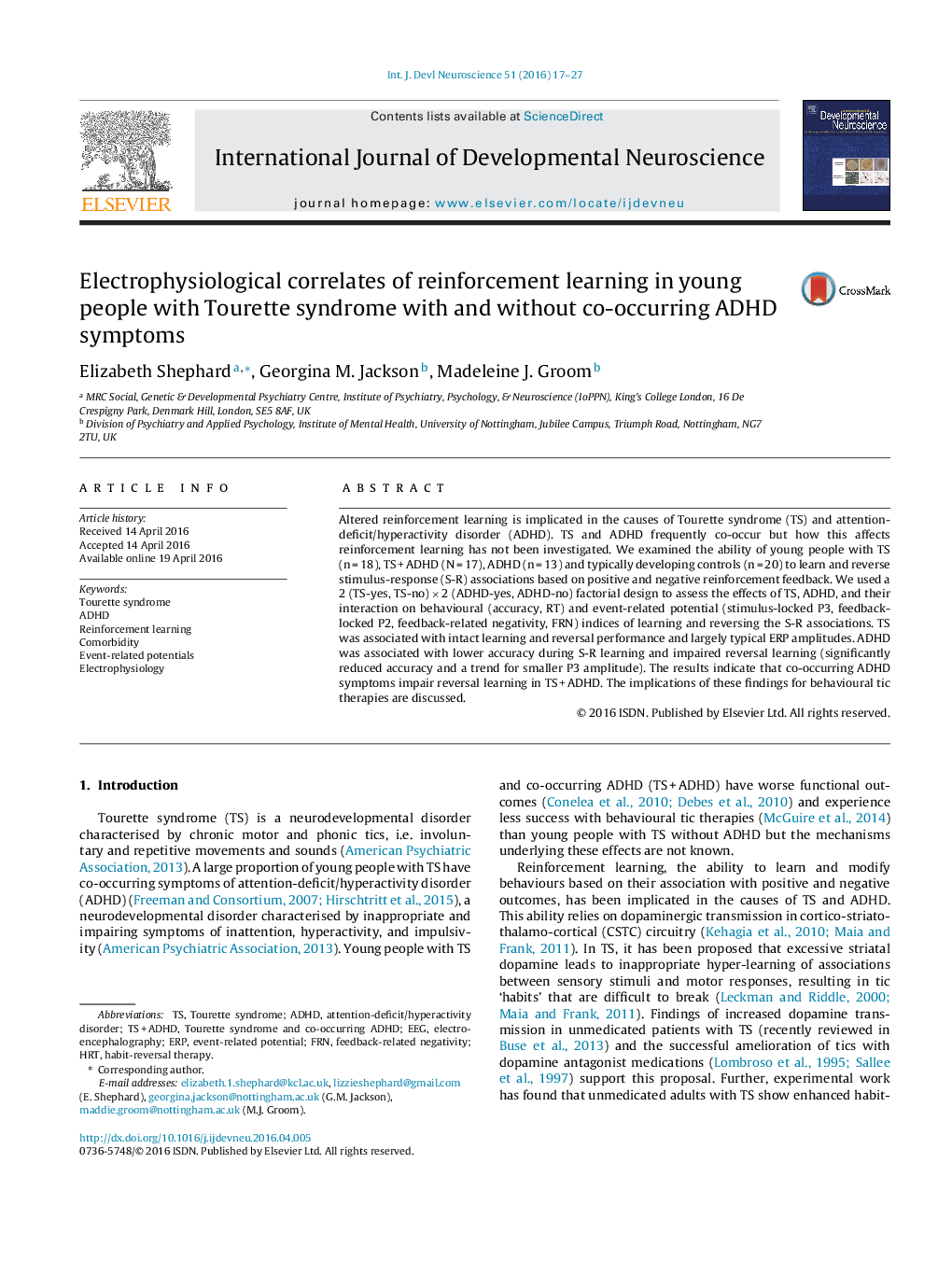| Article ID | Journal | Published Year | Pages | File Type |
|---|---|---|---|---|
| 2785604 | International Journal of Developmental Neuroscience | 2016 | 11 Pages |
Altered reinforcement learning is implicated in the causes of Tourette syndrome (TS) and attention-deficit/hyperactivity disorder (ADHD). TS and ADHD frequently co-occur but how this affects reinforcement learning has not been investigated. We examined the ability of young people with TS (n = 18), TS + ADHD (N = 17), ADHD (n = 13) and typically developing controls (n = 20) to learn and reverse stimulus-response (S-R) associations based on positive and negative reinforcement feedback. We used a 2 (TS-yes, TS-no) × 2 (ADHD-yes, ADHD-no) factorial design to assess the effects of TS, ADHD, and their interaction on behavioural (accuracy, RT) and event-related potential (stimulus-locked P3, feedback-locked P2, feedback-related negativity, FRN) indices of learning and reversing the S-R associations. TS was associated with intact learning and reversal performance and largely typical ERP amplitudes. ADHD was associated with lower accuracy during S-R learning and impaired reversal learning (significantly reduced accuracy and a trend for smaller P3 amplitude). The results indicate that co-occurring ADHD symptoms impair reversal learning in TS + ADHD. The implications of these findings for behavioural tic therapies are discussed.
